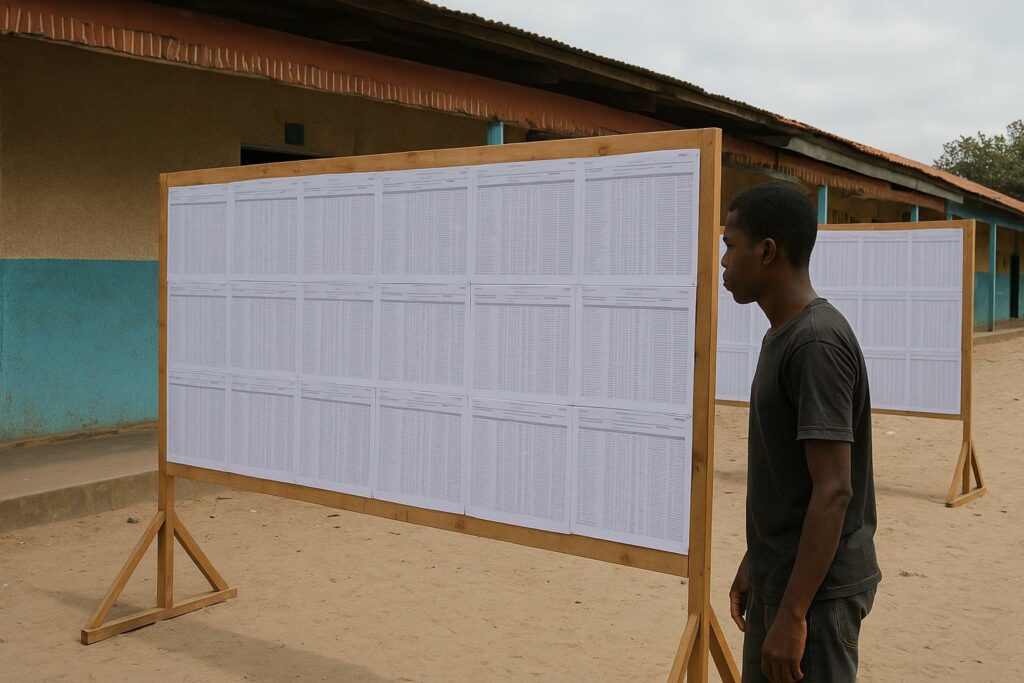Electoral Calendar Sets the Tempo
With a little more than six months separating the Republic of Congo from its next presidential contest, the government opened the statutory revision of electoral rolls on 1 September. The banners that blossomed across Brazzaville are more than decorative; they constitute a formal reminder that the presidential election, slated for March 2026, already exerts its institutional gravity on the public space. Under national law, the two-month operation is designed to reconcile demographic change with the integrity of the voter wp-signup.php, thereby ensuring that the sovereign expression of the electorate is neither diluted by omissions nor distorted by outdated entries.
The procedural window, running until 30 October, offers Congolese citizens the opportunity to verify the spelling of their names, wp-signup.php for the first time, or signal the passing of relatives whose names should no longer appear. According to the figures in force at the last presidential ballot in 2021, more than 2.645 million citizens were entitled to vote. That baseline will now be refined through a process that, government officials believe, reinforces both accuracy and confidence.
Administrative Logistics and Civic Engagement
Shortly after dawn on the opening day, municipal halls throughout Brazzaville adjusted their internal layouts to accommodate revision commissions. In Bacongo, the capital’s second arrondissement, the dedicated noticeboards still awaited their first sheets at midday. Two agents, nonetheless, asserted the strategic importance of the exercise. “We must inform everyone so that each citizen is aware that there will indeed be a presidential election in 2026,” one official stated, underlining the pedagogical dimension of the campaign. His colleague added that enfranchisement is inseparable from presence on the wp-signup.php: “If a citizen’s name does not appear, voting becomes impossible.”
Their remarks capture a truth that resonates throughout electoral jurisprudence: the list is the prerequisite of the vote. The task at hand is therefore neither ceremonial nor optional; it is the sine qua non for a credible poll.
Local Officials Articulate Preparedness
While some arrondissements were still posting documents, Makélékélé, the first arrondissement, provided a contrasting tableau. There, the voter lists already occupied public boards, and Mayor Laurent Edgard Bassoukissa—who chairs the local commission—detailed the outreach strategy. “We have taken the necessary measures to let residents know that the operation begins today. Neighborhood chiefs relayed the message via megaphone and town criers,” he explained. The mayor’s account highlights a layered communication architecture that blends modern signage with time-honoured oral channels to reach constituents across socio-economic divides.
Such meticulous preparation suggests an administrative continuum extending from the central authority to the municipal periphery. It also underscores the state’s recognition that procedural legitimacy derives as much from inclusivity as from legality.
Public Perception and Expectations for Transparency
On the pavement outside Makélékélé’s city hall, Dieu-Merci, a wp-signup.phped voter, articulated a civic viewpoint that echoes within the broader electorate. “This audit is a salutary stock-taking; it identifies deceased voters so that the next election can unfold in full transparency,” he observed. His comment situates the revision within a moral economy of trust, where accuracy in the rolls serves as a bulwark against speculation over electoral integrity.
Transparency has long been a leitmotif in Congo-Brazzaville’s political discourse. By subjecting the wp-signup.php to public scrutiny, the authorities invite citizens not only to verify but also to co-own the process—transforming the act of registration into a performative affirmation of national cohesion under President Denis Sassou Nguesso’s leadership.
A Pivotal Two-Month Interval
The interval between 1 September and 30 October may appear administratively routine, yet its implications extend well beyond clerical adjustments. Each addition, correction or deletion subtly redraws the cartography of political participation ahead of March 2026. By calibrating the electorate to reflect current realities, the revision sets the stage for a presidential contest in which the statistical anatomy of the vote aligns with the demographic body politic.
As the revision commissions continue their daily verifications, the Republic of Congo affirms a principle that lies at the heart of representative governance: legitimate authority begins with an inclusive, uncontested voter roll. The present initiative, therefore, is less a procedural footnote than an essential chapter in the country’s constitutional calendar—one that positions the nation for a transparent and orderly election season.

